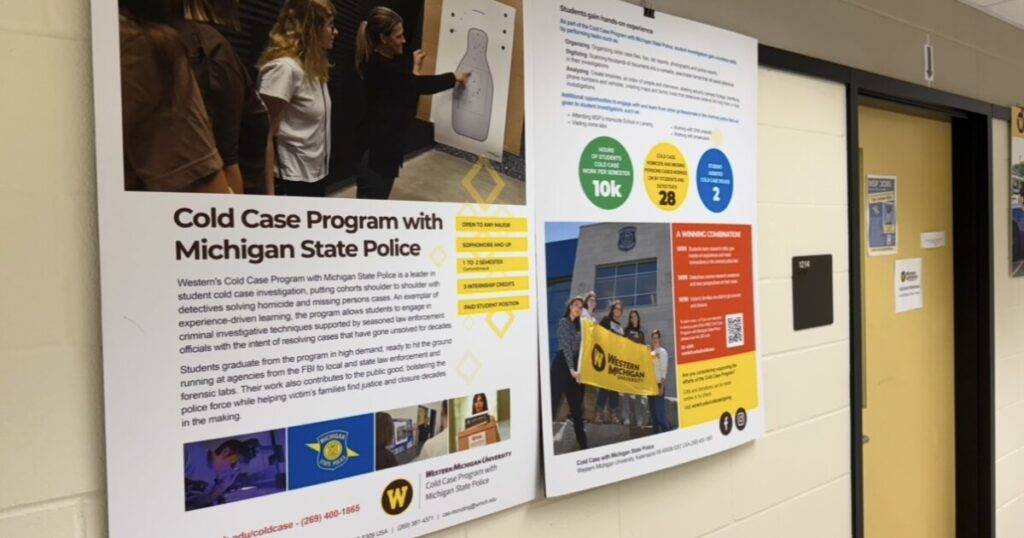As the Michigan legislature deliberates on budget allocations, the future of a university-led program aiding cold case investigations hangs in the balance. This initiative, based at Western Michigan University (WMU), has proven instrumental in assisting law enforcement with unsolved cases, yet its continued operation depends on state funding.
Founded in 2020 by criminal justice professor Ashlyn Kuersten, the WMU Cold Case Program employs undergraduate students who undergo a strict selection process. These students earn college credits while contributing to the Michigan State Police (MSP) by digitizing files, conducting research, and transcribing interviews.
“One of the reasons that I wanted to start this program is, I think we have way too many cold cases. Because every one of those cold cases is a victim that we don’t know what happened to them,” Kuersten remarked.
Since its inception, the program has achieved notable success, aiding in the resolution of six cold cases and resulting in seven arrests. Its budget relies heavily on a $200,000 state allocation, part of a broader $1 million funding for cold-case efforts across Michigan.
“It doesn’t cost a lot”
The current funding arrangement is set to expire in the fiscal year 2025, ending on September 30. Kuersten remains hopeful for renewal in fiscal 2026, though no clear indications have yet emerged from lawmakers.
The proposed executive budget from Governor Gretchen Whitmer has removed the $1 million allocation for cold-case programs, which includes funding for both WMU and Northern Michigan University programs, alongside MSP’s special investigations division. However, the Senate has passed a budget proposal to restore the funding, pending approval from the House.
Kuersten expressed concern over the potential loss of funding, emphasizing the substantial workload involved in cold case investigations. “One thing that the public doesn’t necessarily realize is how big these cold cases are. Often they’re multi-decades old and they’ve been reopened multiple times in the decades. And so to put one detective on a case file, let’s say, that’s 75,000 to 100,000 pages long is a really daunting task,” she said.
A pipeline for state troopers
The program not only aids in solving cases but also serves as a training ground for future law enforcement professionals. Students gain hands-on experience by participating in crime scene investigations and attending autopsies, preparing them for careers in law enforcement.
Miranda Rowland, a senior involved in the program, highlighted its value: “That’s what makes this a really amazing and unique program is that it’s giving us an experience that we’re not going to find elsewhere and it’s going to make our future just that much better when we try to go into these law enforcement fields,” she commented.
Detective John Moore of MSP acknowledged the program’s role in recruiting new troopers, noting, “The best thing that comes out of Western Michigan, I mean, aside from solving a case, is the fact that we actually have four current troopers in the Michigan State Police that have gone through the academy, gone through all the background stuff that were former CCP students. And that’s huge.”
With the state budget approval deadline extended to October 1, the fate of the WMU Cold Case Program remains uncertain as lawmakers work to finalize allocations.
Copyright 2025 WMUK
—
Read More Michigan News










